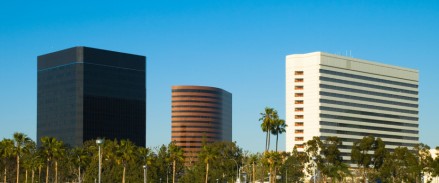On June 3, 2010, the Workers’ Compensation Appeals Board issued its en banc opinion in Mendoza v. Huntington Hospital (38 CWCR 115) evaluating an employer’s right to secure a medical-legal evaluation after issuing a denial of a claim and the application of section 30(d) of Title 8 of the California Code of Regulations.
The underlying claims involved a hospital employee who alleged she suffered injuries to her head face and arms when an infectious disease patient “bit her and slashed her with sharp fingernails.” She was treated in the emergency department for an “[a]brasion” or “scratch l[ef]t arm” and was released with instructions to return to employee health that week for a recheck. Two days later, the employee alleged she was attacked again by the same patient. The employee returned to the industrial medical clinic eight days after the second alleged attack for a recheck, but could not be seen at that time. About two hours later, she collapsed into a comatose state while eating at a restaurant. Through the date of the opinion, she remained in that state and was diagnosed with severe neurological damage, having minimal brain stem function and remaining unresponsive to any stimuli.
Both claims were timely denied. The treating physician issued reports concluding the injury was industrial. Upon receipt of the treating physician’s report, defendant immediately issued an objection and initiated the medical-legal process under sections 4060 and 4062.2 by proposing an Agreed Medical Evaluator (AME). Shortly thereafter, a priority conference was held and applicant argued the matter should be set for trial on the threshold issue of industrial injury, asserting that Rule 30(d)(3) precluded defendant from pursuing a panel QME report because it did not do so within the 90 day period for denying liability per Labor Code section 5402(b). Among other responses, defendant also asserted it had not yet requested a panel QME because it had proposed an AME and the 10-day waiting period of section 4062.2(b) had not yet lapsed.
The judge granted a continuance, and concluded that absent an agreement to an AME, defendant was entitled to a panel QME under Labor Code section 4060 and 4062.2 on the issue of compensability. A Petition for Removal was timely filed by applicant contending the matter should have been set for trial based on the express language of Rule 30(d)(3) coupled with an untimely objection to the treater’s report. Applicant further contended that based on the treater’s report, there was substantial evidence that the injury was industrial, and therefore defendant should be sanctioned for bad faith denial of the claims. The judge responded to the Petition recommending a denial and asserting the Rule 30(d)(3) is “wholly inconsistent with the statutory schemes set forth in . . . sections 4060 and 4062.2” and section 5402, describing it as “unenforceable, and a denial of due process.” The WCAB invited the DWC to submit a brief, which it did. The WCAB expressly rejected the DWC’s arguments that Rule 30(d)(3) is valid and agreed that Rule 30(d)(3) was inconsistent with Labor Code sections 4060(c), 4062.2 and 5402(b). Thus, it affirmed the decision to allow defendant to obtain a panel QME on the issue of compensability. Rule 30(d)(3) provides that “[w]henever an injury or illness claim of an employee has been denied entirely by the [defendant], only the employee may request a panel of Qualified Medical Evaluators on the issue of compensability under section 4060.” The WCAB noted it has exclusive jurisdiction to determine the validity of regulations adopted by the Administrative Director (“AD”). In this context, the WCAB acknowledged that any regulation promulgated by the AD that contradicts the Workers’ Compensation Act is invalid. The WCAB reasoned that neither section 4060 nor 4062.2 provides that only an employee may request a QME panel after an injury claim has been denied, but, read together, those sections establish that “either party” may request a panel “at any time.” Thus, Rule 30(d)(3)’s limitation conflicts with the language of sections 4060 and 4062.2.
The WCAB further reasoned that the presumption of compensability established under section 5402(b) did not apply in the instant case because defendant had timely denied the claim. Moreover, the plain terms of that section do not compel a defendant to commence the panel QME process within the 90 day period. Thus, it concluded, only where a defendant fails to timely deny a claim is it precluded from rebutting the presumption by evidence that could have been obtained had it exercised reasonable diligence to investigate within the 90 days.
The argument that the time limits of section 4062(a) apply were also rejected based on the express language of the section that it applies to “any medical issues not covered by section 4060.” Read in conjunction with sections 4060(a) and 4060(c), the WCAB explained, the time limits of 4062(a) do not apply because the issue is “covered by section 4060” and section 4060(c) directs the parties in a represented case to section 4062.2, not 4062. Finally, though the WCAB recognized that the panel QME process need not be commenced within a specified time period, it did recognize that a defendant has a statutory duty to diligently seek a section 4060 report on compensability.
The WCAB’s opinion invalidating Rule 30(d)(3) allows an employer to swiftly deny a disputed claim without the risk of waiving its right to seek a QME panel examination on the issue of compensability. It further undermines the strategy of an applicant to pursue a treater’s report supporting compensability only after a denial has issued in an effort to preclude defendant from establishing medical evidence in support of its denial. Though no time limits to exercise the right to a section 4060 examination are established by the opinion, the WCAB declares an employer “acts at its own peril” if it does not diligently pursue its right to secure a medical-legal evaluation. Thus, where an employer intends to pursue a medical-legal evaluation, that process should be initiated within a reasonable period of time following a denial.



